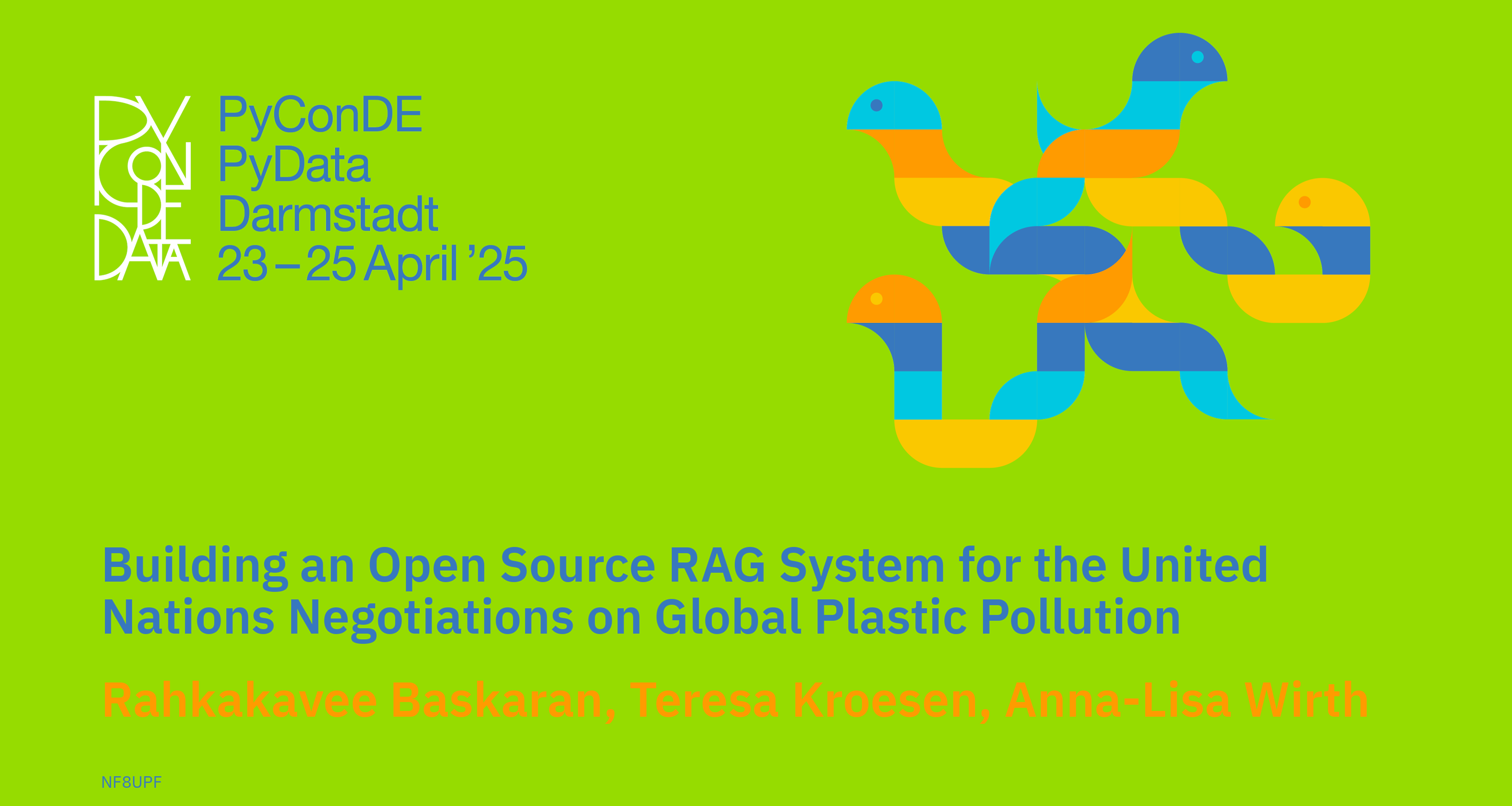Plastic pollution is a global crisis that requires urgent action. An estimated 4.8 to 12.7 million tons of plastic end up in the oceans every year. Forecasts show that global plastic waste will triple by 2060. In response, the United Nations is currently negotiating a legally binding agreement to end plastic pollution, involving representatives from 180 countries in a multi-year process. Tools that can streamline these complex negotiations can help support the negotiations.
This talk introduces NegotiateAI, an open-source application developed to support delegations during the UN negotiations on a legally binding treaty to end plastic pollution. Developed with Haystack 2.0, Qdrant Vector Storage, HuggingFace Spaces, and Streamlit, NegotiateAI is a concrete example of how generative AI can be harnessed to address global challenges. While RAG is no longer a new concept, its variety continues to make it an essential approach for tackling real-world problems with LLMs, as demonstrated in this application.
We will take you on a journey through the development of NegotiateAI from choosing the right tools, to overcoming technical challenges, to using the app in live UN negotiations. Along the way, we will explore the development of a robust RAG system. We’ll also discuss how we leveraged Streamlit to build a user-friendly interface, showcasing features such as multi-tab navigation and custom layouts that make the app intuitive and accessible to end users.
During the session, we will highlight key challenges and present best practices for the coding structure. We will also show how we designed the app to be extensible and allow for the integration of additional data.
Beginners will gain practical knowledge about building RAG systems and their real-world applications, while advanced developers will be inspired by the technical innovations, tool integration, and the potential of generative AI in the public sector. The talk will also provide insights into how organizations like the GIZ (German International Cooperation Society) are using AI to tackle pressing global issues and offer inspiration for anyone interested in the intersection of technology and sustainable development.
